GEAB 115
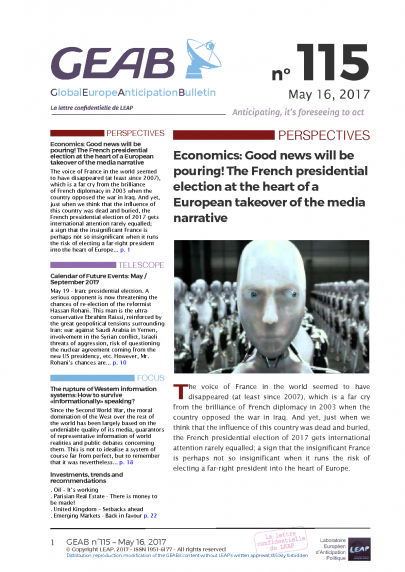
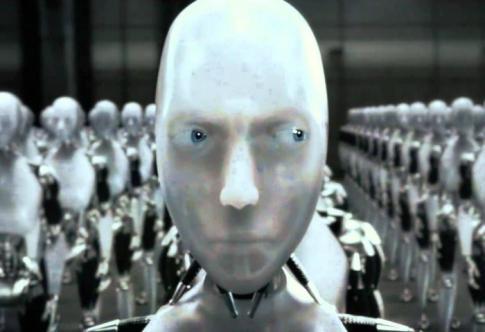

The voice of France in the world seemed to have disappeared (at least since 2007), which is a far cry from the brilliance of French diplomacy in 2003 when the country opposed the war in Iraq. And yet, just when we think that the influence of this country was dead and buried, the French presidential election of 2017 gets international attention rarely equalled; a sign that the insignificant France is perhaps not so insignificant when it runs the risk of electing a far-right president into the heart of Europe.
But the verdict has fallen and the world can now breathe again[1]: although France is the Western country to have suffered the most from terrorism in recent years, the French have resisted the sirens of xenophobia and retreat, by rejecting the far-right candidate, Marine Le Pen, by over 65%. Thus, a pure technocrat, Emmanuel Macron, is the elected president. How did this happen? What is the significance of this result? What will be the implications for Europe?
In this article, our team makes a very bitter observation on the workings that brought Emmanuel Macron to power, but authorises a (cautious) optimism on the potential exit to this crisis which can be seen given the forces actively involved in this election.
Marketing pays off
Our French readers who have experienced the campaign at national level will know too well: it is the candidate of the media who won. Almost no discordant voice occurred in the media landscape, as it is the media itself which imposed Mr. Macron in an unbelievable concert. Certainly, Mrs Le Pen and Mr Mélenchon, who were far too “extreme”, could not be supported, not more than Mr Fillon with his “affairs”, or any more than Mr Hamon, who was abandoned by all sides. Thus, among the five that had a chance, only the candidate of the “centre” truly remained. In fact, the media campaign in favour of Mr Macron began long before all that.
Ever since his nomination as one of the advisors of Mr Hollande in 2012, a media machine was at his service in order to manufacture ex nihilo within five years a French president who was with no party, no support and no programme! The first signs of this “manufacturing” were his appearance in pole position of the 100 economic leaders of tomorrow, a list defined by the Choiseul Institute[2] and abundantly taken up by the French newspapers headed by Le Figaro.
The manoeuvre at work behind Emmanuel Macron has intrigued us for a long time – so his name has been found several times in the lines of the GEAB. We had announced from the beginning of the campaign that the “system” wanted a second round named Macron-Le Pen … The question was whether it would succeed. Needless to say, whatever we might think in the end of Mr Macron’s governance, the operation of him being placed into power speaks volumes about the state of the French democracy. All we need to do now is to hope that this nomination is ultimately for the best.
Closer to the election, the media outlook in favour of Mr Macron became more and more obvious for everyone as early as September 2016[3], and it did not change until May 7, 2017.
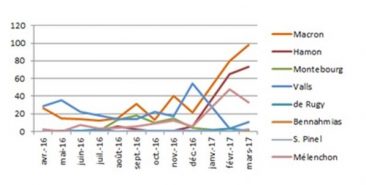

Figure 1 – Number of articles edited in Le Monde having the name of the candidate in their titles. April 2016 – March 2017. Source: Acrimed.
A “macronitis” was denounced, for example, by the editorial staff of Challenges[4], who worried about the very partisan editorial line of their newspaper. It is indeed a pure marketing product that France has elected. As proof, he had already been credited with more than 20% of voting intentions before his manifesto was even known[5]… Laurent Joffrin also wrote: “He is the antisystem at the heart of the system, the one who promises novelty in the old system, the one who makes politics by castigating politicians. […] A liberal but social, European but patriot, enarch but philosopher, banker but militant, voluntary but realistic, audacious but cautious, secular but religious, young but adulated by the old ones[6]“.
The French electorate were only half deceived despite the enthusiasm of the media: within the first round, Macron’s score was less than those of Hamon and Mélenchon combined (legitimately regrouped as both manifestos were similar). And within the second round, despite being like on a boulevard opposite to Mrs Le Pen, he only received 44% of the votes of registered voters (against a background of mass abstention and a record number of blank or null votes) and out of these at least 43% did so only to block the FN[7]. That is to say, he really only convinced about a quarter of the French electorate.
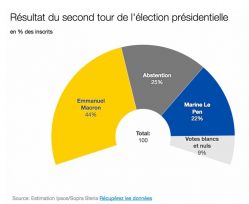

Figure 2 – Second round of the French presidential election of 2017: voting distribution of the registered in percentages. Source: France TV Info.
Surprisingly, good news start pouring
The media’s method to buy membership is quite interesting to analyse here. It is obviously not an isolated case[8], but it is particularly flagrant here.
First, it was necessary to make Mr Macron a media phenomenon, as we have seen, to compensate for the absence of a party and popular support during the launch of his campaign in mid-2016 (creation of the En marche! movement in April, Meeting in July, resignation from the government at the end of August[9]). The image has been primordial here, much more than ideas.
But, more difficult than that, it was necessary to make an incredible U-turn by suddenly changing tone on the results of Mr. Hollande’s policy, until then devoted to grievances, but of which Mr. Macron, as Minister of the Economy, was largely responsible. And, through coincidence or magic, since mid-2016, but even more since Francois Hollande announced that he would not be in the race for the presidency, the media has kept offering us a series of good news! Return of growth[10], better unemployment figures[11], decreasing deficits[12]… soon, the announcement of the 2024 Olympics Games in Paris[13]? Thanks to the social-liberal agenda, France started appearing almost as an engine of a euro zone becoming the locomotive of the world[14], at least of the West, well before the United States who are currently in difficulty[15]…
We do not pretend that this good news is made-up – it obviously reflects some reality – but as our readers know, we have often mentioned that the difficulties of the euro zone were greatly magnified, and therefore aggravated, by a widely-biased media deriving from across the Atlantic, but also clearly supported by European interests.
All that good news we keep hearing for a few months now reveals a takeover of the media narrative: the art of forgetting bad news and of presenting in a good light what has not previously been considered positive. This is a reverse of the media strategy of the last few years which consisted in constantly bashing France (to force it to change) and the euro zone (in the framework of a visible pro-dollar policy) …
On the last two points, there is a change: with Macron at the head of France, the prospects of seeing the necessary economic reforms implemented are now wide open (no longer any reason to mention the negative points), and with Trump at the head of the United States, the support for a pro-dollar policy encounters a setback.
With Mr Macron being unanimously supported by the current “system”, it goes without saying that this good news will continue to pour at the beginning of his mandate to support his action. We therefore cordially invite you to read the newspapers keeping this in mind.
The “system” which our team sees at work behind Emmanuel Macron is the most powerful and lies far beyond the French borders. We posit that it’s the few entrepreneurs who hold 100% of the French media and thus control 100% of French politics (evidence is now being gathered), but who have aggregated around them and their media fire power all the major companies and multinationals of the CAC 40, themselves aligned to similar interests in Europe and beyond. And the fact is that in the chaos caused by the global crisis over a politically weak Europe, a coherence was needed to regain control of the continent’s current affairs. Given the lack of policies on a continent-wide scale, it is the European economic class that came to work… and managed to identify France as a starting point for its takeover strategy. Rightly so, because a Europe without France, as we have often said, had no chance really of functioning and continuing to create unity[16]. In any case, democracy has nothing to do with it. In a way, the choice that the French population made in the second round of their election was a bit of totalitarism[17] as a bulwark against fascism… The pill is still hard to swallow for some, but the continuing European crisis would justify the great means.
Despite this very dark analysis of the workings of Emmanuel Macron’s “irresistible rise[18]“, our team is less worried than last month[19]: What if the Macron marketing product proved finally effective against the crisis?
The compatible candidate
The French presidential campaign of 2017 saw a truly historic moment with the televised debate between Marine Le Pen and Emmanuel Macron. The debate revealed two main things: the emptiness of the one’s manifesto on one side and the unexpected density of the character (and programme) of the other on the other side. Our team anticipates that Marine Le Pen will not recover from this debate, nor probably her party, the National Front. The departure of the niece of the Le Pen family is a first confirmation of this anticipation. This is not necessarily good news, because the way will be free for the creation of a new far-right party, more modern and more efficient…
But in this debate, it is not only Marine Le Pen who was bad; Emmanuel Macron was excellent and we owe directly to him the eviction of the far-right candidate in the second round, by succeeding to convince a whole bunch of abstentionists to finally vote for him… for a good reason this time and not as part of a media manipulative affair.
The immense relief the French felt when having avoided Mrs Le Pen, combined with a good dose of media morality and novelty effect, allows the new president to hope for a “relatively” quiet start to his mandate (contrary to what we wrote a month ago – with little conviction we admit). In any case, Macron should not be the subject of the media lynching contrary to what Mr. Hollande suffered from the first days of his quinquennium. And the good economic news that will continue to pour should calm the most recalcitrant ones.
The fact that the programme is a continuation of the existing policy makes it possible to avoid a lack of market confidence, usually accompanied by capital flood, a fall in stock markets, a rise in interest rates, etc. On the contrary, his past as a banker (which in fact exasperates more than a few) and his well assumed pro-business side provides a useful benevolence within the still lurking spectre of the 2008 financial crisis. He is therefore compatible with the markets, undoubtedly.
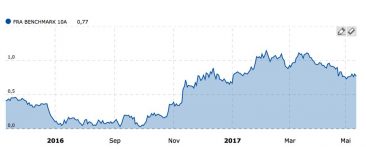

Figure 3 – French obligations rates, 10-year maturity, May 2016-May 2017. Source: Boursorama.
But also, he is compatible with Europe, more than ever: a convinced European, he does not hide his will to strengthen the European construction. “A strong (and open) France in a protective Europe[20]“; if he succeeds in keeping this promise, it would be the return of an influential and constructive France in Europe, which could suit countries seeking a counterweight to Germany (Germany included, as we often say: no country, and especially not Germany, has the capacity/legitimacy to lead the EU or the euro zone alone, and Germany knows it).
Moreover, he is not representative of the French left wing which displeases so much to other Europeans. On the contrary, his programme is in line with the “left” of other EU states (i.e. social-liberal), with a clear acceptance of globalisation and liberalism. In addition, he comes along as a brilliant man, a man of compromise, who is easy to follow (his meteoric campaign seems to prove it in the eyes of the world), which is necessary for the proper functioning of the institutions of our continent.
Compatible with Germany, finally. Mrs Merkel supported him during the campaign[21], and even the intransigent Mr Schäuble, the current German finance minister, wants to work with him on a euro-zone parliament project[22]. If the SPD wins the German September elections, and although the candidate Schulz has supported Mr Hamon[23] (courtesy between socialist parties oblige), Mr Macron is still compatible, supported by the former president of the SPD, Vice-Chancellor and German Minister of Economy, Mr Gabriel[24] (they also wrote a common article on Europe in the Guardian[25] in 2015). In short, whatever the outcome of the German elections, Mr Macron will be happy to work with Germany, which will certainly not please everyone, but has the advantage of creating the potential for the long-awaited reform of the euro zone
He also promises to reduce the French public deficit (while lowering taxes …), for which he will likely get the approval of the National Assembly. If he succeeds, this should bring him some credibility in Europe and particularly in Germany.
The questions concerning his ability to create a majority in the French Parliament are, according to us, less important than suggested by the media on this subject. On the one hand, in the “democracy” we described at the beginning of this article, opinion-shaping media are more important than opinion-following parliaments, and it is therefore the control of the former that will provide Macron’s real power to implement his programme; on the other hand, the results obtained by the two major parties (PS and LR) in the presidential election are conducive to a cascade of direct or indirect rallies to Emmanuel Macron’s movement. We spoke earlier about a major crisis within the FN, but we must also mention the major crisis that the French power parties are beginning to experience since May 7th.
In fact, the only real opposition Macron will have to reckon with is the radical left of Mr. Mélenchon and his ultra-militant basis, but this opposition will be more visible on the street than in the National Assembly.
Implications for the euro and for Europe
If Merkel remains in power, it is doubtful whether the French president will manage to impose his wish to redistribute wealth within the euro area[26]. Similarly, with Mr Macron, the prospects for a reform of the euro as we described it last month are receding. In reality, the question is less the content of the reform than the policy required to implement it. “Everything is politics” as the protestors of May 68 used to say. And the fact is that a political force, anchored in a supranational economic-media apparatus that manages to take the reins – left free – of the euro zone, is the condition sine qua non for the euro zone to restart working … in one way or another.
As for the value of the single currency, the good economic news of the euro zone, the possible creation of a euro-zone parliament, as well as the enthusiasm of the markets, etc., will keep it at a good level, only weakened by the QE of the ECB – for as long as the latter will last.
Login



May 19 - Iran: presidential election A serious opponent is now threatening the chances of re-election of the reformist Hassan Rohani. This man is the ultra-conservative Ebrahim Raissi, reinforced by [...]
Since the Second World War, the moral domination of the West over the rest of the world has been largely based on the undeniable quality of its media, guarantors of [...]
Oil – It’s working In spite of many interests that obviously want to minimise the impact of the agreement on oil production between OPEC and its allies, and doubts related [...]

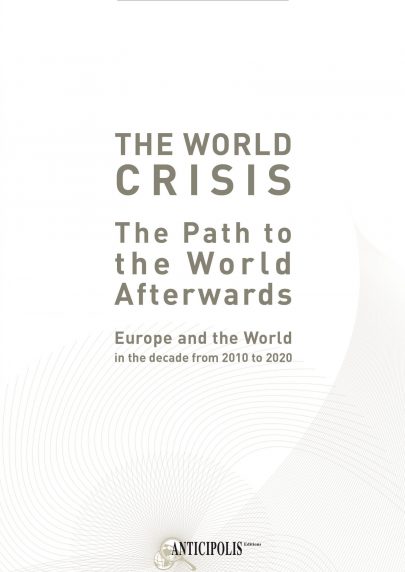
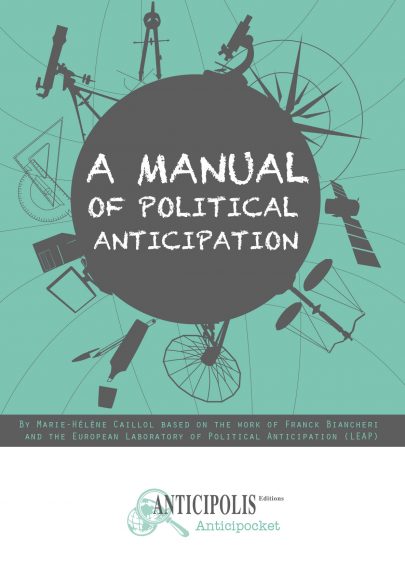
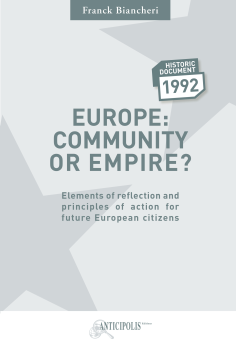
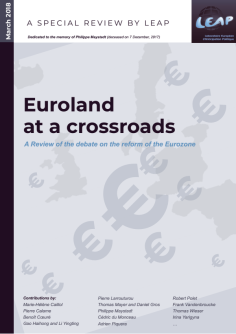
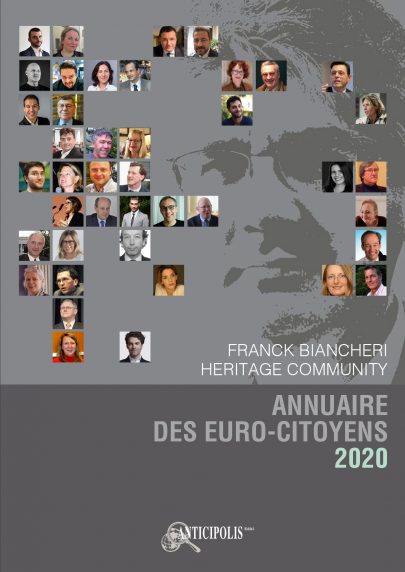
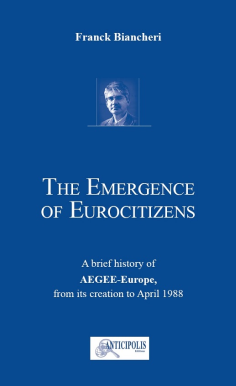
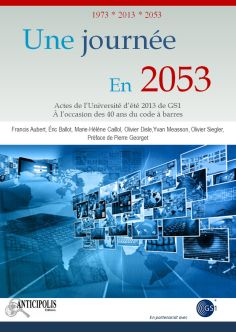
Comments